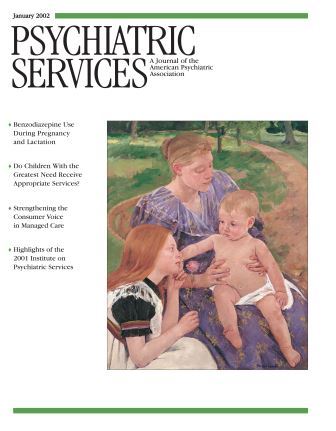Severity of Children's Psychopathology and Impairment and Its Relationship to Treatment Setting
Abstract
OBJECTIVE: The study investigated the settings in which children and adolescents were treated to determine whether clinicians assigned individuals who had greater needs to more intensive treatment. METHODS: Subjects were 603 children four to 16 years of age who visited a mental health treatment facility in Western Australia, where, as is the case throughout Australia, universal publicly funded health care is provided. DSM-IV criteria were used to make diagnoses, and clinicians assessed each child's level of impairment. The clinicians assigned the children to inpatient treatment, day treatment, or outpatient treatment, or they saw the child only for a psychiatric consultation. Measures included parents' and children's reports of children's psychopathology and parents' reports of family functioning, family life events, and parental mental health symptoms and treatment. RESULTS: Clinicians' ratings of impairment were highest for children assigned to the inpatient and day treatment settings. Parents' ratings of total psychopathology and of internalizing and externalizing symptoms were highest for children in the inpatient and day treatment settings. Parents' reports also indicated that family dysfunction and parental alcohol problems were most severe in the inpatient group. No differences in parents' mental health problems were found across treatment settings. CONCLUSIONS: Children with more severe psychopathology and more severe family dysfunction and parental problems were more likely to be provided treatment in the most costly and time-intensive treatment settings. The results provide empirical evidence for what many clinicians consider best clinical practice—to assign children and families to treatment settings appropriate to their level of impairment.



